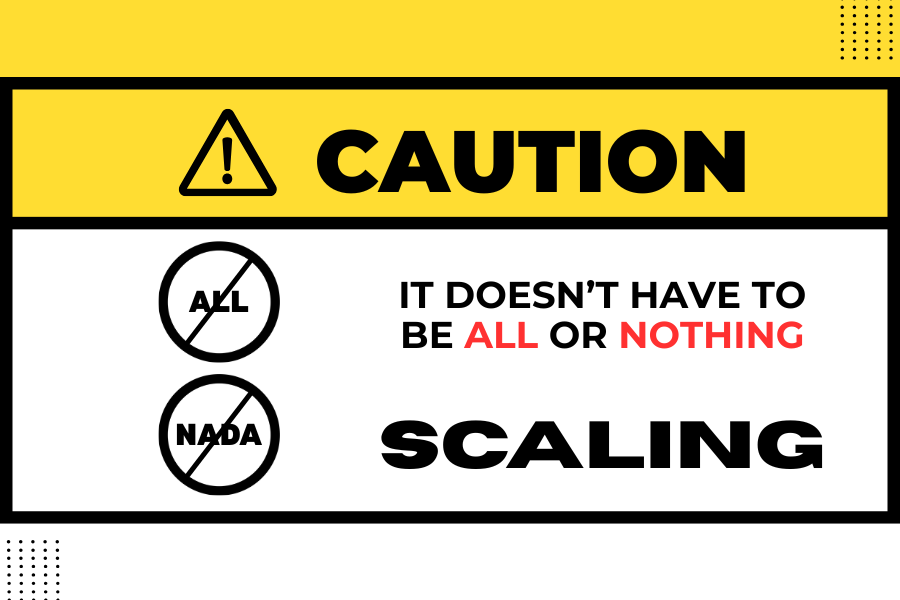
Donor-Advised Funds: A Smart, Tax-Efficient Way to Give for Investors
If you own appreciated stock and want to support charitable causes, a Donor-Advised Fund (DAF) offers one of the most tax-efficient ways to give. It allows you to make a charitable contribution, receive an immediate tax deduction, and recommend grants to charities over time. For investors, especially those with long-term gains, a DAF can turn portfolio growth into philanthropic impact while minimizing taxes.
What Is a Donor-Advised Fund?
A DAF is a charitable investment account managed by a sponsoring organization such as Fidelity Charitable, Schwab Charitable, or Vanguard Charitable. You contribute assets to the fund, most commonly publicly traded stock, and those assets can be invested and grow tax-free. You then recommend grants to IRS-qualified public charities whenever you choose.
Think of it as a charitable savings account designed for investors who want flexibility, simplicity, and tax-smart giving.
Why Stock Investors Use DAFs
Many donors default to giving cash, but donating appreciated stock (includes ETFs and mutual funds) held for more than one year can be far more efficient. When you donate stock directly to a DAF:
- You avoid paying capital gains tax on the appreciation
- You receive a charitable deduction for the full fair market value
- You preserve cash for other financial goals
- You simplify your giving with one consolidated account

This strategy is especially useful if you have highly appreciated shares, concentrated positions, or want to rebalance your portfolio without triggering taxes.
How Does a DAF Work?
- Make a Contribution
You donate publicly traded stock or mutual funds directly to the DAF. If the shares have appreciated, you avoid capital gains tax and receive a deduction for the full market value, up to 30 percent of your adjusted gross income. Cash contributions are also accepted and deductible up to 60 percent of AGI, but donating stock is often more tax-efficient. - Receive an Immediate Deduction
You get a charitable deduction in the year you contribute, even if you distribute funds to charities later. This is especially helpful in years when your income is higher than usual. - Invest and Grow Tax-Free
Contributions can be invested within the DAF and grow tax-free, increasing your future giving potential. - Recommend Grants Over Time
You can recommend grants to any IRS-qualified 501(c)(3) charity. Most providers allow grants as small as $50, and you can choose to give anonymously.
Real-World Example: Maria’s Strategic Stock Donation
Maria, regularly donates $5,000 per year to her favorite nonprofits. In 2025, she owns stock that has appreciated from $5,000 to $30,000. Instead of selling the stock and donating the proceeds, she contributes the appreciated shares directly to a DAF.
- She avoids $4,750 to $5,950 in capital gains tax
- She receives a $30,000 charitable deduction, saving $7,200 to $11,100 in income tax
- Her total tax savings range from $12,000 to $17,000
- She recommends $5,000 grants annually for six years
- Her remaining balance grows at 6 percent, supporting over $33,000 in total giving
Maria turned a single stock position into multi-year charitable impact while preserving her cash and reducing her tax bill.
Key Tax Planning Benefits for Investors
- Capital Gains Tax Elimination
Donating appreciated stock avoids capital gains tax. For example, a $100,000 stock gift with a $20,000 cost basis saves up to $19,040 in federal taxes while providing a full charitable deduction. - Bunching Contributions
In 2025, the standard deduction is $31,500 for married couples filing jointly. By contributing multiple years of donations to a DAF in one year, you can itemize and maximize your deduction. In future years, you can take the standard deduction while continuing to recommend grants. - Strategic Timing for Financial Milestones
DAFs are especially helpful during years when your income is higher than usual. This could happen when you receive a bonus, sell a second home, exercise stock options, convert a traditional IRA to a Roth IRA, or sell appreciated investments. A DAF contribution can help offset the increased income with a charitable deduction. - Estate and Legacy Planning
You can name successors to continue your charitable legacy, involve family members in grantmaking, or direct remaining assets to charities after your passing. - Administrative Simplicity
Most providers charge around 1 percent annually. These fees are typically small compared to the tax savings from avoiding capital gains and maximizing deductions. You receive consolidated tax reporting and do not need to track individual charity receipts.

Is a DAF Right for You?
Consider a DAF if you:
- Own appreciated stock or mutual funds
- Want to simplify your giving and tax reporting
- Are near the standard deduction threshold and could benefit from bunching
- Have irregular income with some high-earning years
- Prefer flexibility in deciding when and how much to grant
- Want to involve your family in philanthropic decisions
- Give to multiple charities and want a streamlined process
Getting Started
- Choose a sponsoring organization and compare fees and investment options
- Open your account online, which usually takes under 15 minutes
- Fund your DAF with appreciated stock or cash
- Select investment options aligned with your grantmaking timeline
- Recommend grants when ready to support your favorite causes
Pro Tips for Maximizing Your DAF
- Contribute appreciated stock instead of cash whenever possible
- Use DAFs to offset income in high-earning years
- Plan ahead for year-end since stock transfers take time
- Combine DAF contributions with Roth conversions to offset income
- Set a granting strategy that fits your goals, whether regular or opportunistic
The Bottom Line
Donor-Advised Funds are especially powerful for investors. By donating appreciated stock instead of selling it or giving cash, you can reduce your tax bill, preserve liquidity, and increase your charitable impact. In Maria’s case, a $30,000 stock donation led to over $12,000 in tax savings and supported more than $33,000 in giving.
If you want to give strategically and make the most of your investments, a DAF may be the perfect fit.
This blog post is intended for educational and informational purposes only. The views expressed are solely those of the author and do not represent professional financial advice. While every effort has been made to ensure the accuracy of the information presented, it should not be relied upon as a substitute for individualized advice from a qualified financial advisor. Financial decisions are complex and personal, and readers are strongly encouraged to conduct their own due diligence and seek professional guidance before making any investment or financial planning choices.
- Chris Maggio, Founder, Retirement Planning Partner, Kirkland, WA—providing fee-only retirement planning to clients in Seattle and across the US.



